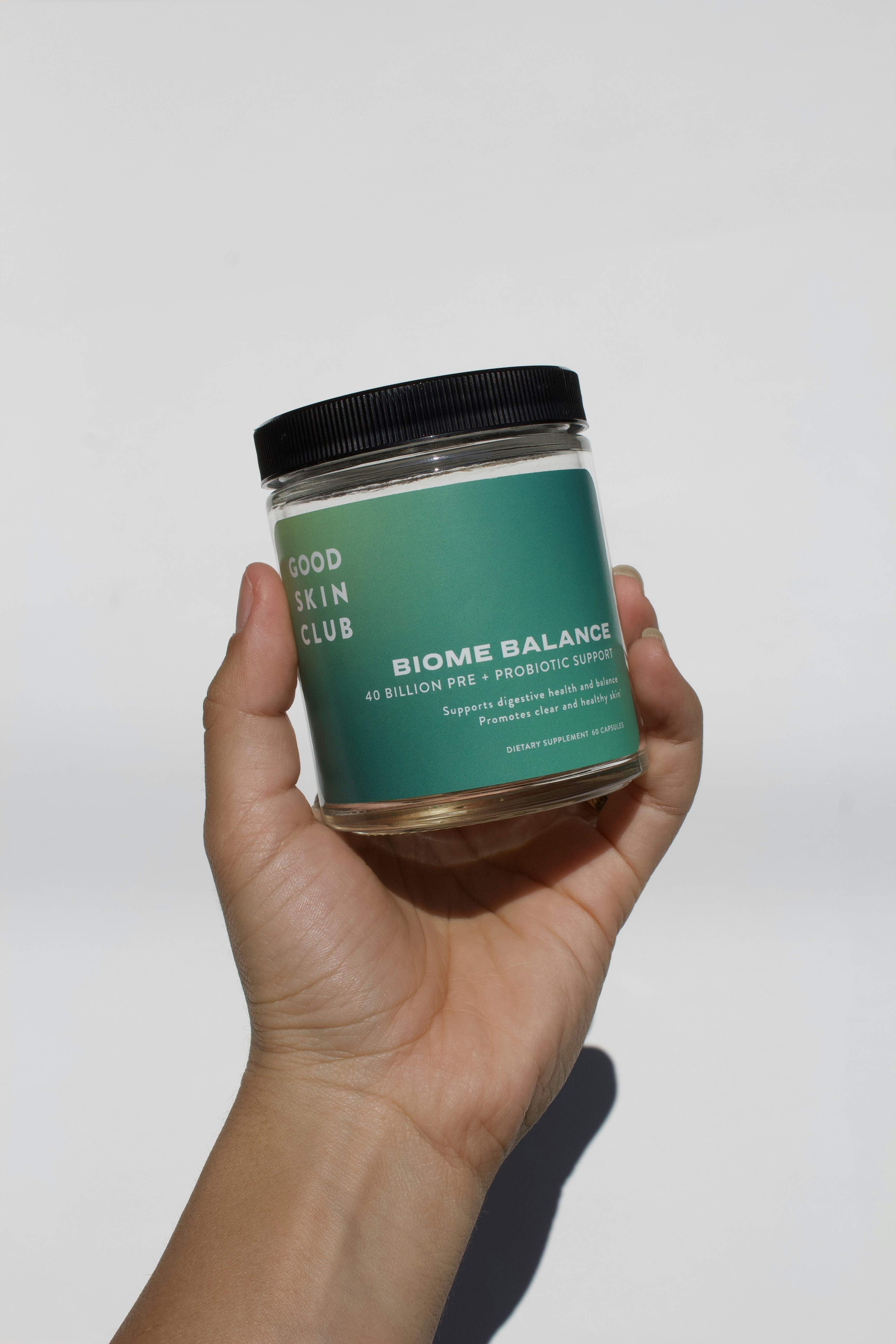Introduction to Diet Culture
Diet culture is a pervasive societal ideology that prioritizes thinness and equates it with health, worth, and success. Originating from the early 20th century, it has grown remarkably, significantly influencing media, fashion, and beauty standards. The advent of marketing strategies promoting weight loss products, as well as the emergence of the fitness industry, have further entrenched these ideas into everyday life. Consequently, diet culture has established a complex relationship with food and body image, often leading individuals to adopt restrictive eating behaviors in pursuit of an idealized physique.
This ideology is reinforced through various channels, including social media platforms, where influencers frequently promote unrealistic body standards and extreme dieting practices. Such representations create societal pressures, compelling many to feel inadequate if they do not conform to these narrow definitions of attractiveness. The glorification of weight loss and the demonization of certain foods contribute to a culture where many individuals engage in a cyclical pattern of dieting, binge eating, and feelings of guilt, further exacerbating the struggle with body image issues.
Diet culture’s reach extends beyond individual experiences, infiltrating workplaces, schools, and even healthcare settings, where body size often becomes the primary focus of assessments related to health. This fixation can obscure the nuanced understanding that health is multifaceted and should not be solely defined by weight or appearance. As the harmful effects of diet culture become increasingly apparent, there arises a mounting recognition of the need to shift away from these damaging paradigms towards more intuitive approaches that encourage individuals to honor their body’s cues and inherent needs.
The Impact of Diet Culture on Mental Health
Diet culture permeates modern society, influencing individuals’ perceptions of their bodies and overall well-being. It promotes narrow definitions of health and beauty, often fostering a cycle of comparison that can have detrimental effects on mental health. The relentless pursuit of an ideal body image, espoused by various media and societal standards, often leads to increased feelings of inadequacy, anxiety, and depression.
Individuals entrenched in diet culture frequently find themselves comparing their bodies to the filtered images presented on social media, which promotes an unrealistic standard of beauty. This constant comparison can result in body dysmorphia—a condition where individuals obsess over perceived flaws in their appearance. The fixation on body shape and size diverts focus from personal achievements and overall health, leading to decreased self-esteem and an increased risk of mental health issues. As individuals increasingly internalize these societal pressures, the impact on psychological well-being becomes even more pronounced.
Furthermore, the stress associated with dieting and food restriction can exacerbate mental health conditions. By placing rigid constraints on food intake, individuals may experience feelings of guilt and shame upon perceived failures like overeating or deviating from their dietary plan. This mindset perpetuates a negative feedback loop where individuals feel compelled to engage in unhealthy eating behaviors, often resulting in binge-eating disorders or disordered eating patterns. The psychological toll is not limited to the individual; it can also create tension within social contexts, affecting relationships and overall quality of life.
Critically evaluating the implications of diet culture is essential in fostering a healthier relationship with food and the body. Emphasizing self-acceptance and intuitive eating may mitigate the adverse mental health effects associated with rigid dietary practices and societal pressures. By refocusing on the body’s cues and inherent self-worth, individuals can begin to break free from the confines of diet culture, promoting mental wellness in the process.
Understanding Your Body’s Cues
Learning to trust your body’s cues, particularly regarding hunger and fullness, is essential for fostering a healthy relationship with food. These physiological signals are integral to self-regulation, allowing individuals to respond appropriately to their body’s needs. Hunger signals may manifest as a growling stomach or a feeling of emptiness, while fullness signals often present as a sensation of satisfaction or a lighter stomach. Understanding these cues can help one distinguish between physiological hunger and emotional hunger.
The science behind these signals involves intricate hormonal responses. When the body requires energy, hormones such as ghrelin signal hunger, prompting the individual to seek food. Conversely, when the body is nourished, hormones like leptin are released, signaling satiety. Tuning into these cues is pivotal for regulating food intake, thereby ensuring that both energy balance and nutritional needs are met. It is important to remember that these cues can be influenced by a variety of factors, including stress, mood, and environmental stimuli, which may complicate the understanding of true hunger versus emotional cravings.
Emotional hunger often arises in response to feelings such as boredom, sadness, or anxiety and can lead individuals to seek food for comfort rather than nourishment. This is where the distinction becomes critical. By recognizing when hunger stems from emotions rather than genuine physical needs, individuals can develop strategies to address emotional discomfort more constructively. Techniques such as mindful eating and reflective journaling can support this differentiation, equipping individuals with the tools to respond healthily to both hunger and emotional triggers.
Ultimately, by practicing awareness of hunger and fullness signals, individuals can cultivate a more harmonious relationship with food, promoting both physical and mental well-being. This approach aligns with the objective of ditching diet culture, as it emphasizes intrinsic cues over external rules or restrictions.
Reframing Your Mindset about Food
Transitioning from a restrictive approach to a more abundance-focused mindset concerning food necessitates a significant shift in perception. The prevalent diet culture often promotes guilt and shame associated with food choices, thus fostering an unhealthy relationship with what we eat. To combat this, incorporating intuitive eating principles can be instrumental. Intuitive eating encourages individuals to listen to their body’s internal signals, such as hunger and fullness, acknowledging that these cues are paramount in guiding food consumption.
Another effective strategy for reshaping your mindset is the practice of mindful eating. This involves being fully present during meals, which can greatly enhance your appreciation of food. By concentrating on the flavors, textures, and sensory experiences of eating, one can cultivate a greater sense of enjoyment and satisfaction. Mindful eating encourages individuals to slow down and relish their meals without distractions, allowing for a more profound connection with food and reducing the likelihood of overeating.
Moreover, it is essential to regard food not merely as fuel but as a source of pleasure and nourishment. Adopting an abundant mindset facilitates enjoyment of a variety of foods, including those often deemed ‘off-limits’ in traditional dieting frameworks. This inclusive approach paves the way for a diverse diet where all foods can coexist, promoting a healthier relationship with eating.
To further support this transition, one might consider journaling about their food experiences, reflecting on emotions tied to eating, and embracing flexibility with dietary choices. By shifting the focus from rules and restrictions to a more holistic understanding of nourishment, individuals can learn to appreciate food in its entirety—celebrating its ability to nurture both body and mind.
Learning to Surrender Control
Letting go of control over food choices and body image can be a daunting challenge for many individuals entrenched in diet culture. The pervasive influence of this culture often cultivates an unhealthy relationship with food, leading to rigid meal plans and unrealistic body expectations. Transitioning away from such stringent practices requires a deliberate effort to foster trust in one’s own body and its cues.
To begin cultivating this trust, individuals might find it beneficial to adopt a mindset centered around intuitive eating. This approach encourages listening to hunger and satiety signals, creating a more harmonious relationship with food. By acknowledging these internal signals, one can shift their focus from external guidelines to personal needs and preferences. Additionally, practicing mindfulness during meals can enhance this process, allowing individuals to savor their food and become more aware of their body’s responses.
Another strategy involves gradually introducing flexibility into one’s food choices. Instead of adhering to a strict set of dietary rules, experiment with different foods and allow for variety in meals. This can help dismantle the perception of “good” and “bad” foods, ultimately promoting a balanced approach to eating. Importantly, embracing occasional indulgences without guilt can contribute positively to overall well-being.
Body image often intertwines with the control over food, making it essential to foster a sense of self-acceptance. Engaging in positive self-talk and surrounding oneself with supportive communities can significantly affect one’s perception of body image. Furthermore, focusing on what the body can do rather than how it looks can invite a healthier perspective.
Ultimately, surrendering control requires patience and practice. Challenging ingrained beliefs about food and body image is not an overnight process; it necessitates consistent effort and a commitment to personal growth. Embracing these strategies can lead to a healthier, more balanced lifestyle that honors individual needs and desires.
Practical Steps to Ditch Diet Culture
Embarking on the journey to leave diet culture behind requires intentional and sustainable practices. One effective approach is to start a food journal. Tracking what you eat, along with accompanying thoughts and emotions, can lead to valuable insights. This exercise encourages mindfulness around food choices and helps in recognizing patterns that may stem from diet culture rather than genuine hunger or satisfaction. By documenting these experiences, individuals can develop a clearer understanding of their unique relationship with food.
Another important step is to cultivate self-compassion. This involves treating oneself with kindness and understanding, especially when facing challenges related to body image or food choices. Instead of engaging in negative self-talk, individuals should practice affirmations that reinforce a positive body image and acknowledge the effort being made towards personal growth. Embracing small successes in this process can greatly enhance an individual’s self-esteem and create a more positive outlook on their body.
Creating a supportive environment is crucial in fostering body positivity. This can be achieved by surrounding oneself with people who promote healthy body images and challenge diet culture norms. Engaging in discussions about intuitive eating and the importance of listening to one’s body can help reinforce these positive views. Additionally, removing triggering content, such as diet advertisements or social media accounts that promote unrealistic body standards, can significantly enhance mental well-being.
Integrating these practical steps into daily life can facilitate a gradual shift away from diet culture. It is important to remember that this process may take time, and it is perfectly normal to encounter setbacks. Embracing the journey with patience and understanding will lead toward a more fulfilling and balanced relationship with food and one’s body.
Building a Supportive Community
Creating an environment that promotes body positivity and intuitive eating can significantly enhance one’s journey towards detaching from diet culture. Connecting with individuals who share similar values can provide encouragement and motivation, making it easier to trust your body’s cues. A supportive community fosters a culture of acceptance, where each member is respected for their unique experiences and perspectives. It is within these communities that individuals often find solace—knowing they are not alone in their struggles or their successes.
Engaging with social media platforms can be an effective way to build these connections. Many online spaces are dedicated to body positivity and intuitive eating, such as Instagram accounts, Facebook groups, or dedicated hashtags that allow users to share their journeys. Following creators who advocate for positive body image can provide inspiration and practical tips for integrating intuitive eating into daily life. Additionally, online forums can serve as platforms for discussion and sharing personal experiences, creating a sense of belonging among participants.
For those who prefer face-to-face interactions, seeking out local support groups can be beneficial. Community centers, wellness workshops, or even local events often feature gatherings aimed at promoting self-acceptance and health at every size. These environments allow for deeper connections, fostering friendships based on shared values and goals. Participants can discuss their journeys, share resources, and create accountability within a like-minded group. Ultimately, whether online or in person, being part of a supportive community can empower individuals to embrace their bodies and practice intuitive eating without the weight of societal expectations.
Embracing Body Positivity and Acceptance
In the journey of learning to trust our bodies, embracing body positivity and acceptance plays an essential role. Body positivity involves recognizing that all bodies, regardless of shape or size, are worthy of respect and love. This movement encourages individuals to appreciate their bodies for what they can do rather than how they look, fostering a healthier relationship with oneself. Cultivating body positivity enables individuals to move away from negative self-talk and the unrealistic standards perpetuated by diet culture.
One effective strategy for developing self-love is to practice gratitude for one’s body. Taking time each day to acknowledge and appreciate the functions and capabilities of your body can significantly shift your mindset. Consider starting a gratitude journal where you can list attributes you admire about yourself, such as your strength, resilience, or even the ability to enjoy a delicious meal. This practice challenges negative perceptions and fosters a deeper appreciation for the body as a whole.
Additionally, surrounding oneself with diverse representations of bodies can significantly enhance acceptance. Engaging with body-positive media, following individuals who celebrate diversity, and participating in communities that promote acceptance can provide encouragement and inspiration. These platforms often highlight that beauty is not confined to one ideal, promoting self-acceptance among individuals of all sizes and shapes.
It is also beneficial to remember that the journey towards body positivity is not linear. There may be days filled with doubt or negativity, and that is entirely normal. It is essential to approach these feelings with compassion and patience. By consistently practicing self-love and gratitude, individuals can cultivate a healthier self-image and ultimately trust their bodies more effectively. Learning to embrace body positivity is not just a personal endeavor; it contributes to a broader cultural shift that celebrates all bodies, creating a more inclusive environment for everyone.
Conclusion: Your Journey Toward Freedom and Trust
As we navigate the complexities of modern society’s expectations surrounding body image and dietary choices, it becomes increasingly clear that the journey to freedom from diet culture is both transformative and essential. Embracing your body’s cues is a gradual process, one that requires time, patience, and above all, self-compassion. It is crucial to recognize that trusting oneself does not happen overnight; it is a continuous journey of learning and unlearning. Each individual’s path is unique, reflecting personal experiences, challenges, and triumphs.
Throughout this blog post, we have explored the detrimental effects of diet culture on mental health and the importance of reconnecting with our bodies. By fostering a mindset that prioritizes listening to our internal cues rather than adhering strictly to external dietary norms, we can cultivate a healthier relationship with food and our bodies. Liberating ourselves from the shackles of dieting leads not only to improved well-being but also to enhanced self-acceptance and body positivity.
Moving forward, consider setting small, achievable goals that align with your journey of self-trust and body acceptance. This could involve practicing mindfulness while eating, journaling your thoughts and feelings about food, or seeking support from communities that share similar values. Remember that this process is deeply personal; allow yourself the grace to evolve at your own pace. Trusting your body is a skill that can be developed through practice and reflection.
In conclusion, the path to liberating oneself from the constraints of diet culture is rewarding and enriching. By prioritizing self-trust and allowing your body to guide your choices, you embark on a journey that honors your unique experience. Embrace the freedoms this journey brings, and celebrate your capacity for growth and understanding. Your body is deserving of respect and love, now and always.










